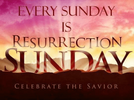RamistThomist
Puritanboard Clerk
It just occurred to me that 2 Kings 23:22 provides a good corrective to any confidence that the universal practice of the early Church is a guarantor that Easter ought to be celebrated. This thought came to me as I was reading another article about the nature of Reformation.
If it's possible that the entire history of the Judges and Kings was marked by a failure to properly observe the Passover, it is not impossible that a practice was introduced that needed Reformation.
Can you imagine the outcry among some well-meaning religious people when the bronze serpent was destroyed as an act of Reformation?
I'm not trying to turn the entire early Church into "bad guys" but merely cautioning against universal agreement in practice as being a warrant for acceptance.
It seems to me that Baptists, especially, would have to agree with this sentiment.
I don't think we are saying one ought to celebrate Easter, only that it was very common, very early on. The Quartodecimanist controversy attests to that fact.

